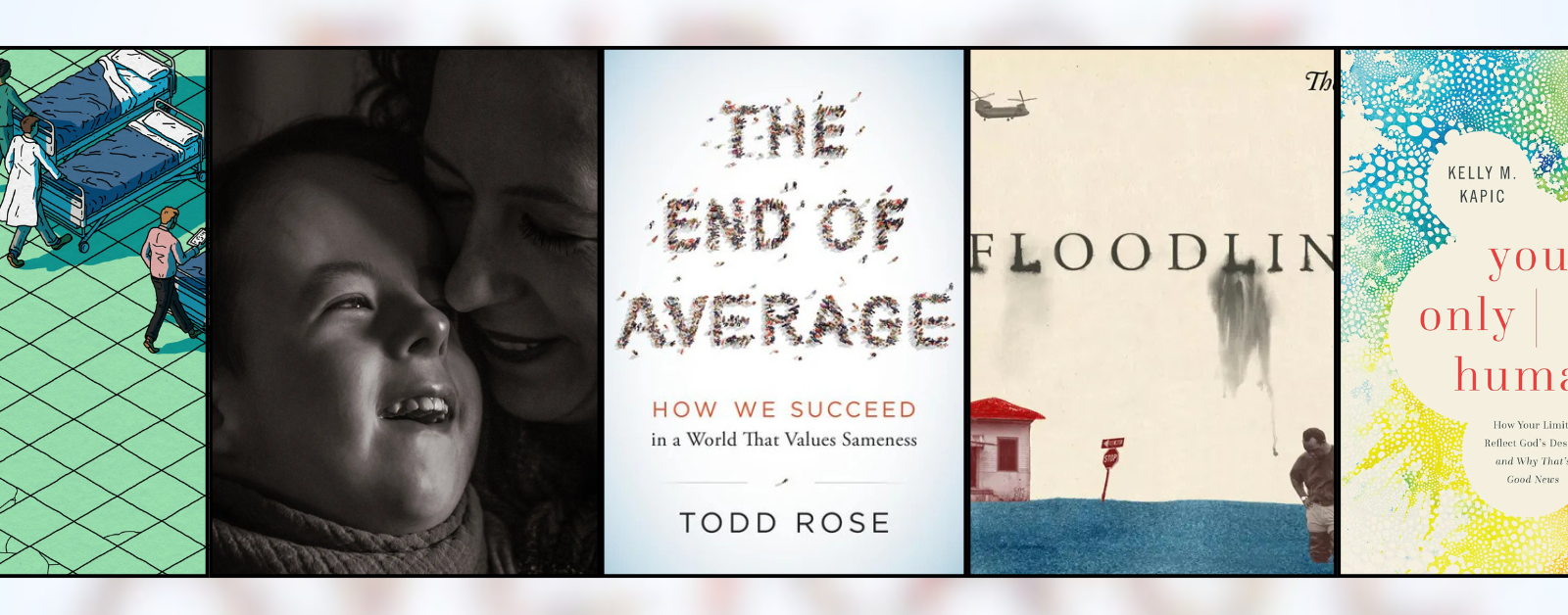Books, essays, podcasts episodes, and more that I think are worth your time, plus recent cultural news that I’m paying attention to…
ESSAYS
ESSAY: “Canada Is Killing Itself”
This is an excellent essay in the Atlantic about MAID (medical assistance in dying) in Canada. Eliana Plott Calabro tells a story of a man living in a nursing home. He is feeble, and blind, and lonely. He decides to avail himself of MAID. Then, once he tells his family about this decision, they begin to visit him again. At this point, he realizes he does not want to die. He rescinds the request for MAID.
He doesn’t need to regain his previous bodily strength or his eyesight in order to experience a good life right now. But he does need relationships. He needs love.
ESSAY: ”How an Ultra-Rare Disease Accelerates Aging”
This essay in the New Yorker about the rare genetic condition progeria, which causes accelerated aging and a significantly shortened lifespan, provides a helpful depiction of the promises of biomedical research. These scientists are looking to correct the genetic code of people already experiencing—and suffering from—disease.
ESSAY: “What It Really Means to Choose Life”
This David French reflection also happen to be on the Atlantic essay about MAID and the Douthat/Siddiqui podcast conversation that I mention here. Some of our thoughts overlap, but he hones in on the problem of suffering with some helpful thoughts and questions:
“What happens when we make a transition from understanding that suffering is an inevitable part of the human condition, one that rallies people to love and care for the people they love (or even to love and care for people they don’t know), to it being somebody’s fault — perhaps it’s the parents who wrongly brought you into this world or your own fault for hanging on too long?”
I’d like to write more—perhaps in a future newsletter—about the difference between seeking to alleviate suffering and seeking to eradicate suffering, especially when eradicating suffering would mean eradicating distinct and particular human beings.
ESSAY: “I’m a Conservative. My Disabled Son Needs Medicaid to Live.“
Rachel Roth Aldhizer recently wrote about her four-year-old disabled son, David, whose rare condition requires nearly constant care. She describes him this way:
“David does not walk, talk or eat independently. He is visually impaired and has hearing loss. He has an unrepaired cleft palate open to protruding brain tissue, covered by a thin layer of mucous membrane. Developmentally, David is like a 10-month-old baby. He is our joy, and it is our privilege to parent him.”
She goes on to say:
“How we care for our most vulnerable reveals what we believe about ourselves… At one point or another most of us will lose our independence, health, rationality and will. Eventually we will rely wholly on someone else to care for us. Dependence, weakness, need of others: These are features, not bugs, of the human experience.”
These are features, not bugs, of the human experience.
ESSAY: “Noah Is Still Here”
There are no easy choices when it comes to the care of medically complex conditions like trisomy 18. And yet people on both sides of the abortion debate often simplify these conversations. I was surprised and encouraged to find this essay from the NYT that offered nuance, depth, and complexity in reporting on families raising children with trisomy 18. Sheri Fink masterfully conveys the value and meaning of children like Noah, who has trisomy 18, while also offering reasons why parents might choose not to continue life in the ways his parents have. For anyone wrestling with the complexities of medical ethics and choosing life in a broken world, this essay offers great insight without easy answers.
BOOKS
BOOK: You’re Only Human by Kelly Kapic
And finally, I just finished Kelly Kapic’s You’re Only Human, which does a wonderful job of explaining why our human limits are a part of the goodness of being human. I’m talking with him later this fall on my Reimagining the Good Life podcast about both the book and the newly released devotional guide that accompanies it.
BOOK: The End of Average by Todd Rose
This fascinating book explains why there is no such thing as an average person. It also explains how the idea of averages came to rule our schools and workplaces, how we began to understand some people as “better than” and “worse than” average, and how we can instead begin to value individuals for who they are and what they bring rather than needing them to conform to an illusory idea of average.
PODCASTS
PODCAST: Floodlines
I’ve been listening to Floodlines, a podcast about Hurricane Katrina twenty years ago. It is both heart wrenching and fascinating coverage of a tragic story.
Get my favorites delivered to your inbox each month.
Subscribe here.
More Favorites and AJB Recommends
If you use a link from here to purchase something I recommend, it sometimes earns me a small commission, which enables me to continue the work I do here. So thank you! (As an Amazon Associate, I earn from qualifying purchases.)



